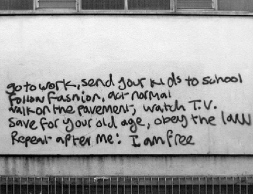This is going to be a bit different from what I usually post on here, but, having stumbled across this, I gotta say something about it in public.
I’ve been a regular, small-time ebay user since 2000. I mainly trade in collectibles: action figures, comics, punk and hardcore records, and other geeky stuff like that. The other day I was doing a broad search to identify an item (toy) that came into my possession. The search terms were “vintage” and “hulk,” which yielded a lot of results to wade through. As I’m scanning through comics and toys and pins and pictures of the wrong Hulk (ie, Hogan) and the like, two adjacent listings’ images stuck out as out of place . . . really out of place. See if you can guess which ones I mean:
Yes, the pictures of a kid opening Christmas presents seem more than a bit weird here. Nothing super insidious at first glance, but then out of curiosity I clicked one open to figure out what the hell this was someone was selling. The item for sale was a candid family photograph (as was the other one) listed under “other contemporary images” and “Trading Cards>Comic>Incredible Hulk.” Yeah, that’s a trading card, right.
Here’s a cap of the auction (as above, as a completed listing rather than the live one I saw at first):
Here’s a link to the original listing, while it lasts.
If the problem with this listing isn’t apparent enough from the title, here’s an excerpt from the seller’s item description (seller is gydfe55ney, who joined ebay June of last year):
I AM LISTING DOZENS OF ORIGINAL, VINTAGE, COLOR PHOTOS AND COLOR CHRISTMAS PHOTOS OF CUTE HANDSOME YOUNG TEEN BOYS, YOUNG GIRLS AND BABY BOYS.
THIS IS A GUARANTEED ORIGINAL AND VINTAGE COLOR SNAPSHOT PHOTOGRAPH SHOWING CUTE HANDSOME YOUNG BOYS.



You must be logged in to post a comment.